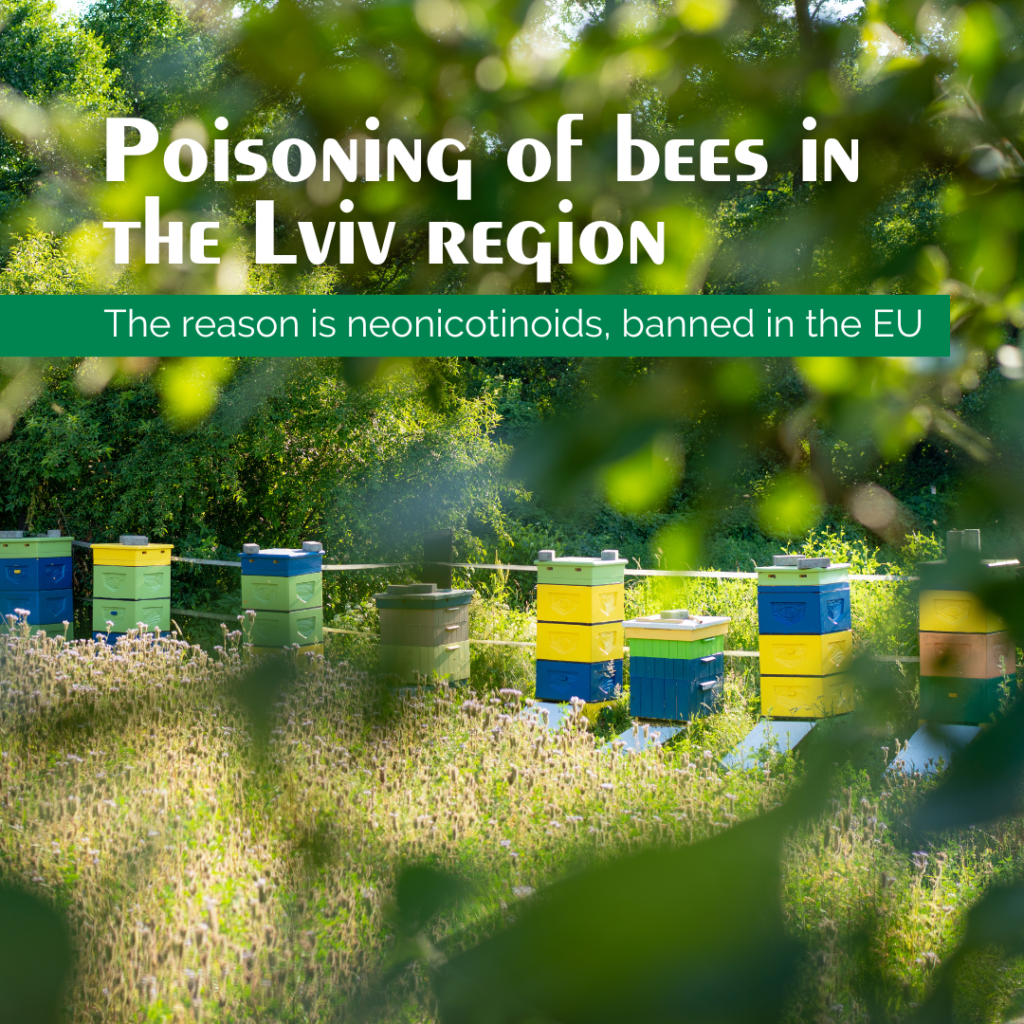On its information resources, EPL has already informed about the case of a mass plague of bees in Brody district (Lviv region)1.
According to the results of a study conducted by the State Enterprise “Scientific Center of Preventive Toxicology, Food and Chemical Safety named after L.I. Medved of the Ministry of Health of Ukraine”, traces of clothianidin were found in samples of dead bees that died this spring in the Brody district. These results are indicated in the Test Report No. 3/28-А-1355-23/2502/396 dated 29/06/2023.
Clothianidin, like other neonicotinoid substances, is an insecticide with contact, intestinal and systemic effects. This substance actively affects a variety of insects, in particular from the Coleoptera, Homoptera and Diptera families. It is usually used for seed treatment, soil treatment and protection of green mass.
Clothianidin works at the biochemical level by continuing to open sodium channels in the insect’s central nervous system. This leads to the blocking of the transmission of nerve impulses, death of the insect occurs due to excessive nervous excitement. Clothianidin begins to work immediately after application.
Over the past decade, many studies have been conducted showing the adverse effects of neonicotinoids on non-target organisms. Neonicotinoids are believed to be at least partially responsible for the spread of Colony Collapse Disorder Syndrome (CCDS)2, which has been observed in honey bees since the beginning of this century, either directly or through a complex interaction with pathogens. These substances can have acute or chronic effects on the health and lifespan of wild bees and bumblebees. Although there are studies proving the possibility of toxicity in humans, this issue remains a matter of debate.
In 2018, the European Food Safety Authority published a detailed report that updated the risk assessment for such substances as imidacloprid, clothianidin and thiamethoxam. This report contains scientific evidence that neonicotinoids affect the spread of bee colony collapse disorder and other environmental threats. Because of this, in 2018 the European Union banned the use of these three neonicotinoids in open fields.
Two years before this ban, in 2016, France became the first country to ban the use of neonicotinoids for crop protection. This ban came into force in September 2018.
Detection of clothianidin in dead bees is alarming, as it indicates to a potential danger for bees, ecosystems, and possibly even for human health.


